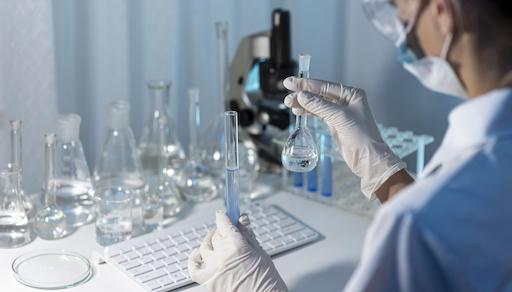Hospital labs tend to be used for patient diagnosis and treatment. They generally help identify medical issues and provide solutions. Research labs, on the other hand, specialise in conducting tests and analyses in the hopes of adding to the body of scientific knowledge. The purpose of scientific examination in a research lab is not necessarily to provide a solution to a specific problem (outside of the issue of not having enough existing knowledge about a topic). To better understand the contrast between hospital labs and research labs let’s first give a definition for the facilities that will help us make a comparison between the two.
What Is a Research Laboratory?
Research laboratories aim to expound on the current body of existing knowledge. The definition of a research laboratory is a facility that is dedicated to carrying out experiments that result in scientific discoveries or advancements. Much like other types of medical labs, before discoveries are implemented on an industrial scale they are scrutinised for quality control purposes.
What is a Hospital Laboratory?
A hospital laboratory is a facility that carries out tests that can be done repeatedly, and in line with Good Laboratory Practices (GLP) to help diagnose different medical conditions. They are in-house medical laboratories within hospitals. In such facilities, medical tests of blood, urine and other specimens are conducted. Although hospital labs do conduct research, for the most part they perform sample tests for patient needs. Hospital labs’ capacity to do research makes them able to tend to general or specific patient needs, either conduct tests in-house, or outsource them to external hospital/medical laboratories. The latter is usually done when a hospital does not have the capacity in terms of expertise or equipment to carry out certain tests themselves.
What is a Medical Laboratory?
In medical laboratories, lab professionals examine and evaluate phenomena relating to the field of medicine. Medical lab professionals typicaly analyse and test bodily specimens and advise physicians as to how to better diagnose their patients’ physical state. Samples are taken from patients for evaluation and discussion by lab professionals. After this process is complete, lab professionals will communicate the results of their testing on a sample to a physician. A physician will then relay this information to a doctor who will advise their patient on the best treatment for their condition.
A med lab may have several different departments, similar to the ones found in a general care hospital. Each department in a medical lab will differ in what specific area of medical treatment they specialise in. There may be a paediatric, oncology and genetic department in one medical lab. A medical lab can be considered a hospital lab when it operates from within a hospital, but would be considered a medical lab when it operates independently.
What is the Difference Between a Research Lab and a Hospital Lab?
These definitions should give you a good grasp of what research and hospital labs are, so let’s look at exactly how they differ.
Firstly, hospital labs and research labs differ in how they function. Hospital labs are used for medical diagnosis. their purpose tends to be more specific than that of a research lab. Hospital labs, however, usually do have the capacity to do research work and in some cases exercise their ability to do so.
Research labs aim to conduct research that serves the purpose of increasing the knowledge base of a particular field of study (basic research) and research that uses the knowledge that is deduced from basic scientific research to solve issues other than just a lack of existing knowledge (applied research). Applied research is usually used to provide practical solutions to problems that affect the world, these issues are usually technology related.
Research labs are most commonly found in universities, governmental organizations, or private businesses. This is a wide range of settings in comparison to hospital labs that can only commonly be found in clinical labs and hospital labs.
Another difference between research labs and hospital labs is that while research labs tend to do a lot of work that involves novelty, producing new medications and looking for new materials, hospital labs tend to perform a lot of routine activities, analysing blood counts, urine samples, and microbiological cultures.
To conclude, the primary aim of a hospital laboratory is to provide patients with diagnostic testing services, while a research laboratory is primarily focused on discovering and uncovering new scientific knowledge.
At Techmate, we offer lab supplies that are relevant to both facilities. If you need some guidance as to what specific products you may need for your lab, you can always contact our team of experts who would be more than willing to assist you.

